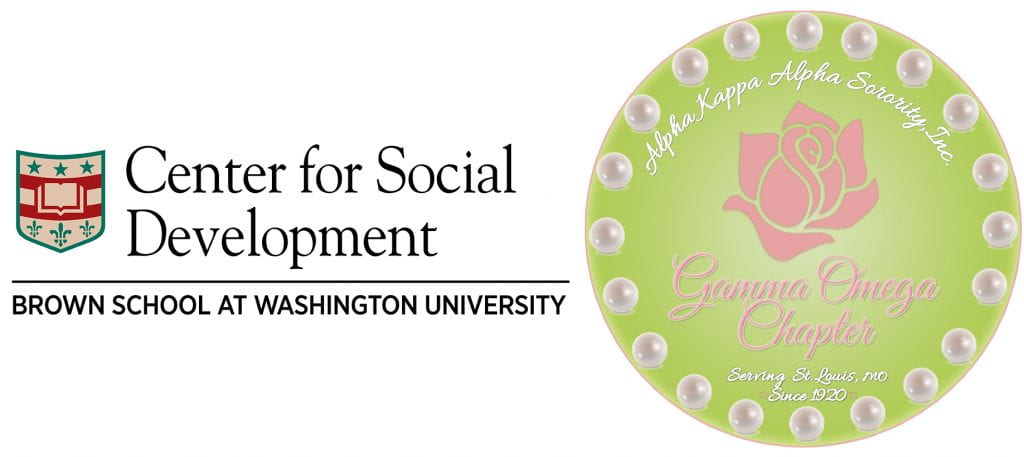
Date: January 12, 2021, 6:30 pm – 8:00 pm CT
Location: Virtual Webinar
Conversation 1 – Understanding Nonpartisan Voting in the City of St. Louis
Summary
On the heels of historic election policy reform (Prop D) in the November 2020 election, St. Louis City election officials are preparing for the first nonpartisan Primary Municipal Election on March 2, 2021. The primary election includes approval voting for St. Louis’s next mayor, 16 ward alderman races, and city comptroller.
This webinar is designed to assist voters and citizens of St. Louis City to understand the new election format. Attendees will hear from a national expert and election officials from the Board of Election Commissioners. The Center for Social Development at Washington University and the Alpha Kappa Alpha Sorority Incorporated™, Gamma Omega Chapter, are hosts.
Panelists
Jessie Fields, MD | Board Member, and National Spokesperson, Open Primaries
Dr. Jessie Fields serves as a board member and national spokesperson for Open Primaries, a nonprofit organization. Open Primaries is a movement of diverse Americans who advocate for open and nonpartisan primary systems. The mission is to provide information to the public about open and nonpartisan primaries. The organization works with voters, policymakers, civic organizations, business leaders, and community activists to educate, build bridges, and develop the primary reform movement.
Professionally, Dr. Jessie Fields is an attending physician in Internal Medicine affiliated with the Mount Sinai Hospital in Manhattan. She maintains a primary care general medical practice at the Mount Sinai Faculty Practice in the Harlem community. She serves on the Icahn School of Medicine faculty at Mount Sinai Hospital.
Growing up in a poor Black neighborhood in Philadelphia, she set out on a career to bring better health conditions to poor urban communities. Dr. Fields attended Bryn Mawr College and the Medical College of Pennsylvania in Philadelphia. She completed her residency in Internal Medicine and is Board Certified in Internal Medicine.
David Kimball, PhD | Professor, University of Missouri-St. Louis
Dr. Kimball is the interim Chair of Political Science. Professor Kimball’s research and teaching focus are on American government, election administration, voting rights, political parties, public opinion, and voting behavior. He is the co-author of three books: Helping America Vote, Lobbying and Policy Change, and Why Americans Split Their Tickets. He is co-editor of Controversies in Voting Behavior.
D. Benjamin Borgmeyer | Democratic Director, Board of Election Commissioners City of St. Louis and Leo (Gary) Stoff, Jr. | Republican Director, Board of Election Commissioners City of St. Louis
The partisan directors of the Board of Election Commissioners for the City of St. Louis are responsible for ensuring that every eligible resident of the City is encouraged to vote. They ensure that public elections in the City of St. Louis are conducted fairly and impartially, consistent with federal law, Missouri state statutes, and the Charter of the City of St. Louis. The directors are governed by the Board of Election Commissioners members appointed by the Governor.
Moderated by Gena Gunn McClendon, PhD | Director of Voter Access and Engagement, Center for Social Development, Brown School, Washington University in St. Louis
Closing remarks by Lonita Blackman | President, Alpha Kappa Alpha Sorority, Incorporated ™, Gamma Omega Chapter
About This Series
The Voter Access and Engagement initiative at the Center for Social Development convenes national and regional experts for a series of virtual conversations about voting in Missouri during the COVID-19 pandemic. Panelists address the new electoral system for the City of St. Louis, Missouri voting laws, election protection, the electorate, and more. Topics will include protecting the right to vote, nonpartisan voting, other strategies for voting safely, and what to expect if voting in person. The series will highlight issues critical to the franchise during a health crisis and point to long-term strategies for inclusive democracy during elections.